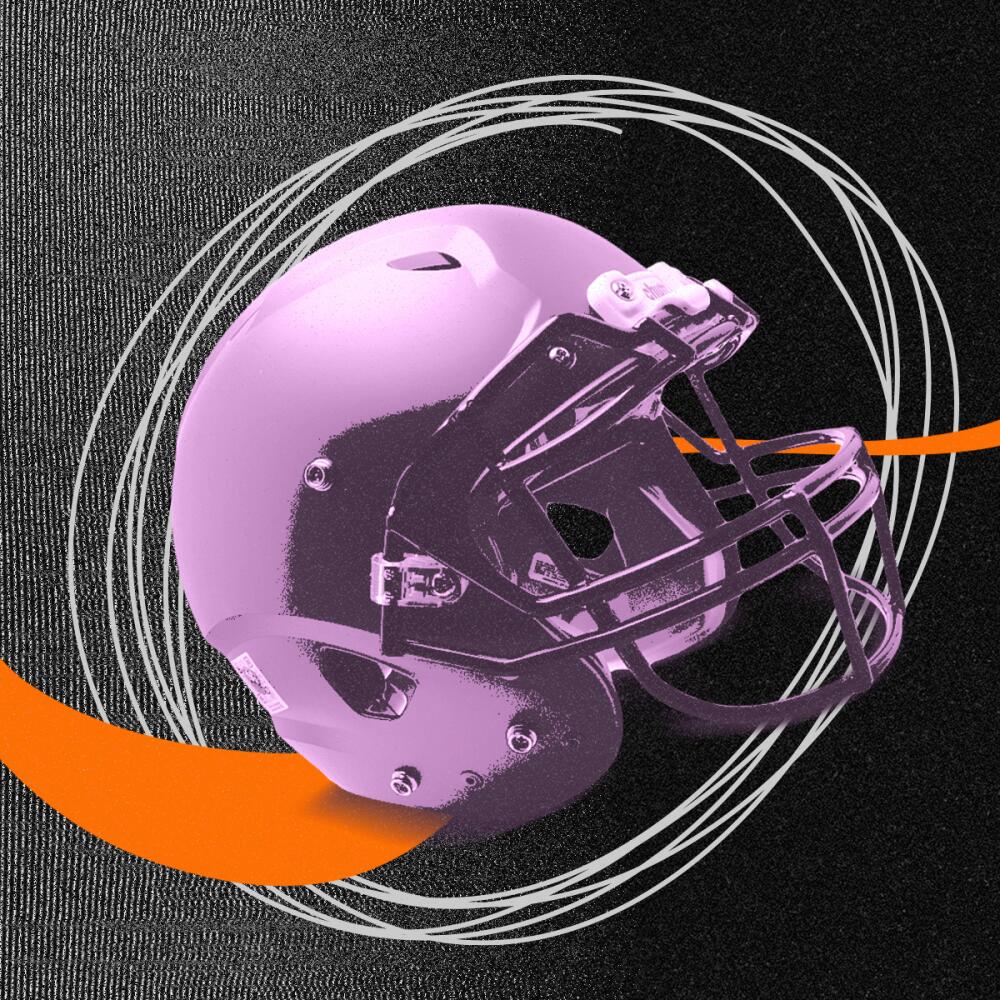
Ramon Diaz felt compelled to act after reading a letter attributed to Northwestern University’s football team, defending head coach Pat Fitzgerald in the midst of hazing allegations that they called “exaggerated and twisted into lies.”
The July 8 statement described recent claims of hazing as “fabrications” intended to harm and “tarnish the reputation of our dedicated players and coaching staff.”
As Diaz — a former Northwestern University football player — sat in his car reading the letter, he felt “appalled by the gaslighting that took place.”

“What a horrifying experience when you share your trauma story for the first time to the public, … and then that’s the immediate response,” Diaz, an offensive lineman who played for the Wildcats from 2005-08, told De Los.
Diaz, 36, said he immediately reached out to The Daily Northwestern campus newspaper on July 10 to detail the hazing and racial abuse he encountered while on the team. Now, he’s among the latest to sue Northwestern, alleging the football program enabled a culture of racial and sexual abuse. Diaz is represented by Parker Stinar and Salvi, Schostok & Pritchard, which filed the lawsuit on his behalf. Defendants include the university’s board of trustees and Fitzgerald.
A licensed clinical therapist pursuing a Ph.D. in neuropsychology, Diaz wants to advocate, not only for himself, but for the younger athletes who have filed their own claims. “I couldn’t imagine doing that at their age … I really applaud them for their bravery,” he said.
‘What motivates us every day to write songs and music is the great pride of having Mexican blood in our veins.’
Northwestern has announced that its athletic department will be investigated by former U.S. Atty. Gen. Loretta Lynch after allegations of hazing and racism within the football team and other programs came to light.
The investigation comes weeks after school President Michael Schill fired Fitzgerald following another investigation by former Illinois Inspector General Maggie Hickey that found “significant opportunities to discover and report the hazing conduct.” Several athletes have filed lawsuits against the school.
Fitzgerald’s lawyers, in a statement published by the Associated Press, said: “The facts and evidence will show that Coach Fitzgerald implemented and followed numerous procedures and protocols to ensure that hazing would not occur.”
A son of Mexican immigrants, Diaz details in the lawsuit how football players shaved “Cinco de Mayo” into the back of his head as part of a hazing tradition. All or most of the football team watched, he claims in the suit.
The co-host of ‘Drag Race Mexico’ sat down with columnist Suzy Exposito to discuss her illustrious television career, her Chicana pride and the freedom of being nonbinary.
In 2005, Diaz said he was forced to participate in the annual tradition known as “the carwash,” in which two rows of players would line up naked covered in soap and would spin around at the shower entrance, according to the suit. Freshman players had to rub up against the line of men to get to their showers, according to the suit.
Being recruited as a high school student, “I had no idea what I was getting myself into,” Diaz told De Los. He recalls having to translate between coaches and his Spanish-speaking parents.
“As a son of an immigrant family, you have no one to walk you through this at home. You have no one to explain the challenges that might be ahead of you, or even just someone describing to you the educational landscape,” Diaz said, adding that he saw playing football at Northwestern as a potential pathway to financially help his family.
Diaz said former assistant coach James Patton told his family that his well-being would be prioritized. Patton, according to Diaz, said he would receive “an excellent education” while being “treated for the human being that I am and not just for my skill level.”
But that was not the case, Diaz said.
In a news conference Aug. 2, Diaz said former offensive line coach Bret Ingalls, who is now a football analyst at the University of Michigan, insulted his family’s cultural upbringing and their humble upbringing in Mexico.
“You said on many occasions that even though I grew up on dirt floors, we don’t live like that here. Those words ring true to me like they happened yesterday,” Diaz said of Ingalls during the news conference.
Get the Latinx Files newsletter
Stories that capture the multitudes within the American Latinx community.
You may occasionally receive promotional content from the Los Angeles Times.
“Living on dirt floors is something I’m proud to talk about when I share with people the living conditions my father lived in in Mexico,” he said. “I’m proud to be my father’s son and I’m a Latino American. The harsh living conditions my father endured reminds me of the virtues he instilled into me: character, integrity, and resiliency.”
Ingalls, in a statement provided by the University of Michigan, described Diaz as a “disgruntled player” making “baseless accusations.”
“I have dedicated my entire career to mentoring and coaching young men of all races, ethnicities, and backgrounds. I respect all individuals and have continued to do that throughout my coaching career,” Ingalls said.
A former teammate of Diaz told ESPN he witnessed Ingalls making racist remarks toward Diaz. According to ESPN, he spoke under the condition of anonymity, saying “Ingalls said something to the extent of, ‘Man, this room is really dirty. It’s a pigsty. Ramon, I know your parents clean up after folks like this. How should we do it?’”
According to Diaz’s lawsuit, Ingalls and Patton made racial and degrading remarks toward Northwestern football players.
The lawsuit also notes that Matt MacPherson, who remains on the Northwestern roster as associate head football coach, and Ingalls encouraged or witnessed players participating in “naked pull ups.”
Jon Yates, a spokesperson at Northwestern, said in a statement that the school is reviewing allegations involving MacPherson. “We will review any specific allegation involving current coaches or players and will take the appropriate disciplinary actions based on the facts,” the statement read.
Diaz, at the news conference, said he attempted to commit suicide in 2007 by using painkillers “as a result of the bigotry and racism.” He felt depressed, hopeless and a loss of control, he told De Los.
“In most Latino communities, mental health is not real. It doesn’t exist, and and then being a male in a Latino community, it’s even far more taboo to talk about your mental health,” Diaz said.
Diaz started working manual labor jobs after graduating from Northwestern. He began seeing a therapist years later, he said, after his wife encouraged him to do so. He also studied philosophy and theology. “Trying to commit suicide brought up a lot of existential questions for me … What people believe about God? What people believe about spirituality?” he said
“That led me even further into studying the mind,” Diaz said.
He earned a master’s from Adler University in clinical mental health and works as a clinical therapist in private practice. He has a special interest in trauma and sport psychology.
For Diaz, a guiding question is: “What does it look like to be a person of color, and to be in a highly competitive sport environment?
“[This is] what drives me and what motivates me every day now. The culture of abuse, of bigotry, racism, and segregation that is found in sport culture is widespread,” Diaz said.
More to Read
The Latinx experience chronicled
Get the Latinx Files newsletter for stories that capture the multitudes within our communities.
You may occasionally receive promotional content from the Los Angeles Times.










